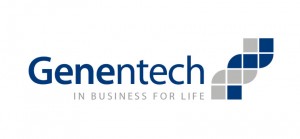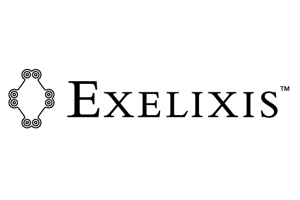 Genentech and Exelixis have released encouraging results from their latest clinical trial collaboration, whereby advanced melanoma patients receiving a combination of vemurafenib (Zelboraf), a BRAF inhibitor, and cobimetinib, a MEK inhibitor, significantly improved progression-free survival (PFS) when compared with vemurafenib treatment alone.
Genentech and Exelixis have released encouraging results from their latest clinical trial collaboration, whereby advanced melanoma patients receiving a combination of vemurafenib (Zelboraf), a BRAF inhibitor, and cobimetinib, a MEK inhibitor, significantly improved progression-free survival (PFS) when compared with vemurafenib treatment alone.
This randomized phase III coBRIM study began in 2012 and followed 495 untreated BRAFV600 mutation-positive patients with unresectable locally advanced or metastatic melanoma receiving a combination of cobimetinib at 60 mg once a day plus vemurafenib at 960 mg twice a day or vemurafenib plus placebo at 960 mg twice a day, on days 1-21 of a 28-day cycle. The primary endpoint for the study was PFS with overall survival (OS), objective response rate (ORR), and duration of response as secondary endpoints. Full data from the study will be presented at a medical meeting later this year.
Combining the inhibition of both MEK and BRAF has the potential to bypass treatment resistance of single-agent therapy, therefore reducing the incidence of secondary skin cancers associated with BRAF-targeted monotherapy.
 “Despite great progress in our understanding and therapy in recent years, advanced melanoma remains a difficult and deadly disease that requires more treatment options,” said Sandra Horning, MD, chief medical officer and head of Global Product Development at Roche. “These encouraging data support the potential combined use of cobimetinib with Zelboraf to block tumor growth longer than Zelboraf alone. We hope this combination therapy will lead to a new option for patients.”
“Despite great progress in our understanding and therapy in recent years, advanced melanoma remains a difficult and deadly disease that requires more treatment options,” said Sandra Horning, MD, chief medical officer and head of Global Product Development at Roche. “These encouraging data support the potential combined use of cobimetinib with Zelboraf to block tumor growth longer than Zelboraf alone. We hope this combination therapy will lead to a new option for patients.”
In a previous open-label phase Ib trial, 66 vemurafenib-refractory patients and 63 BRAF inhibitor-naïve patients with BRAFV600 mutation-positive metastatic melanoma were treated with the same combination.
In treatment-naïve patients, the median PFS was 13.7 months and the ORR was 87%, with 10% achieving a complete response. Additionally, 10% of patients had stable disease and the 1-year survival estimate was 83%. In patients refractory to vemurafenib, the median PFS was 2.8 months and the median OS was 8.3 months, with an estimated 1-year survival of 32% and with a total of 42% of patients achieving stable disease.
 Nevertheless, some common side effects were observed such as diarrhea (64%), non-acneiform rash (60%), fatigue (48%), nausea (45%), liver laboratory test abnormality (40%), and photosensitivity/sunburn (40%). Additionally, some adverse grade ≥3 events also occurred, such as cutaneous squamous cell carcinoma (9%), anemia (7%) and joint pain (6%).
Nevertheless, some common side effects were observed such as diarrhea (64%), non-acneiform rash (60%), fatigue (48%), nausea (45%), liver laboratory test abnormality (40%), and photosensitivity/sunburn (40%). Additionally, some adverse grade ≥3 events also occurred, such as cutaneous squamous cell carcinoma (9%), anemia (7%) and joint pain (6%).
Genentech announced its plans to submit an application to the FDA, who earlier this year approved the combination of the BRAF inhibitor dabrafenib (Tafinlar) and the MEK inhibitor trametinib (Mekinist) for patients with unresectable or metastatic melanoma who carry a BRAF V600E or V600K mutation. This approval was based on the results of an open-label phase I/II trial that resulted in a 9.4-month PFS with combination therapy compared with 5.8 months for dabrafenib alone, and in a phase III COMBI-d study where the median PFS was 9.3 versus 8.8 months and the median ORR was 67% versus 51%, for the combination versus monotherapy respectively.
“Despite recent therapeutic innovations, BRAFV600 mutation-positive advanced melanoma can be difficult to treat due to the emergence of resistance,” said Michael M. Morrissey, PhD, president and chief executive officer of Exelixis. “We look forward to the full presentation of the data later this year. If ultimately approved, we will execute on our collaborative US co-promotion effort with Genentech and work alongside our partner to bring this important new therapeutic option to melanoma patients in need.”


